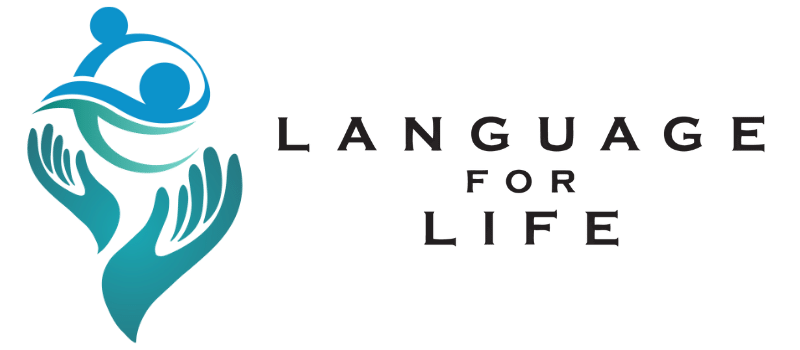Hearing loss is a common condition that affects millions of people worldwide. Children, in particular, are susceptible to hearing loss, which can have a significant impact on their speech and language development.
As a parent or caregiver, navigating speech therapy for a child with hearing loss can be a daunting task. Fortunately, with the right approach and a team of dedicated professionals, it is possible to help your child overcome these challenges and thrive.
In this article, we will explore the importance of speech therapy for children with hearing loss, the different types of therapy available, and how to find the right therapist for your child’s unique needs.
So, if you’re ready to learn more about how to support your child’s speech and language development, hear us out! Understanding the Different Types of Hearing Loss.
Before we dive into the specifics of speech therapy for children with hearing loss, it’s essential to understand the
different types of hearing loss that can occur. There are three main types of hearing loss: conductive, sensorineural, and mixed.
- Conductive hearing loss occurs when sound waves cannot pass through the outer or middle ear due to a blockage or damage. This type of hearing loss is often temporary and can be caused by ear infections, allergies, or a build-up of earwax.
- Sensorineural hearing loss, on the other hand, occurs when there is damage to the inner ear or auditory nerve. This type of hearing loss is typically permanent and can be caused by genetics, exposure to loud noise, or certain medications.
- Mixed hearing loss is a combination of conductive and sensorineural hearing loss. This type of hearing loss can be caused by a variety of factors, including trauma to the ear, infections, or tumors.
The Role of a Speech Therapist in Treating Hearing Loss
Speech therapists, also called speech-language pathologists, are vital in treating hearing loss in kids. They are experts in assessing and addressing communication and swallowing problems, including those related to hearing loss.
The goal of speech therapy for children with hearing loss is to help them develop their speech and language skills to their fullest potential. This may include teaching the child how to use hearing aids or cochlear implants to improve their ability to hear and understand speech.
Speech therapists may also work with children to develop their speech production skills, such as articulation and phonological awareness. Additionally, speech therapists can help children with hearing loss improve their language comprehension and expression, including vocabulary, grammar, and syntax.
Speech Therapy Techniques for Children with Hearing Loss
Several speech therapy techniques can be used to help children with hearing loss improve their speech and language skills. One of the most common techniques is auditory-verbal therapy (AVT), which focuses on developing the child’s ability to understand and use spoken language through listening alone.
AVT typically involves one-on-one therapy sessions with a speech therapist and the child’s caregiver. During these sessions, the therapist will use a variety of techniques to help the child develop their listening and spoken language skills, such as repetition and modeling.
Another common speech therapy technique for children with hearing loss is sign language. Sign language can be used as a primary mode of communication for children with severe or profound hearing loss or as a supplement to spoken language.
Other speech therapy techniques that may be used for children with hearing loss include speechreading, which involves using visual cues to understand spoken language, and augmentative and alternative communication (AAC), which involves using devices or symbols to communicate.
The Importance of Early Intervention in Speech Therapy
Early intervention is critical for children with hearing loss to achieve their full potential in speech and language development. The earlier a child receives speech therapy, the better their chances are of developing their language skills to their fullest potential.
Research has shown that children who receive early intervention services for hearing loss demonstrate better language outcomes than those who receive intervention later in life.
It’s essential to have your child’s hearing evaluated as soon as possible if you suspect they may have hearing loss. Early diagnosis and intervention can help prevent delays in speech and language development and improve your child’s overall quality of life.
Tips for Parents on How to Support Their Child’s Speech Therapy Journey
As a parent or caregiver, you play a vital role in your child’s speech therapy journey. Here are some tips to help support your child’s progress:
- Attend all therapy sessions and follow through with any at-home exercises or activities recommended by the speech therapist.
- Encourage your child to practice their listening and spoken language skills in everyday situations, such as during mealtimes or while playing.
- Use clear and simple language when communicating with your child and give them time to process what you are saying.
- Celebrate your child’s progress and be patient with their setbacks.
- Advocate for your child’s needs and work with their speech therapist to develop a personalized treatment plan.
The Benefits of Assistive Technology in Speech Therapy
Assistive technology can be a valuable tool in speech therapy for children with hearing loss. Hearing aids and cochlear implants can improve a child’s ability to hear and understand speech, and communication devices such as tablets and communication boards can help children with severe communication impairments.
Additionally, there are several apps and online resources available that can supplement speech therapy and help children with hearing loss improve their language skills.
Finding the Right Speech Therapist for Your Child
Finding the right speech therapist for your child is crucial to their success in speech therapy. It’s essential to look for a speech therapist who has experience working with children with hearing loss and who is knowledgeable about the latest techniques and technologies in speech therapy.
You can start by asking your child’s pediatrician for a referral or by searching online for speech therapists in your area. It’s also helpful to ask other parents of children with hearing loss for recommendations.
Once you have a list of potential speech therapists, take the time to research each one and schedule a consultation to discuss your child’s needs and goals.
Speech Therapy Resources for Parents and Caregivers
There are several resources available for parents and caregivers of children with hearing loss who are seeking speech therapy services. The American Speech-Language-Hearing Association (ASHA) is a great place to start, as they offer a directory of certified speech therapists and information about speech therapy for children with hearing loss.
Other helpful resources include the Centers for Disease Control and Prevention (CDC), the National Institute on Deafness and Other Communication Disorders (NIDCD), and local support groups for parents of children with hearing loss.
Conclusion: The Power of Speech Therapy in Helping Children with Hearing Loss
In conclusion, speech therapy can be a powerful tool in helping children with hearing loss develop their communication and language skills.
By understanding the different types of hearing loss, the role of a speech therapist in treating hearing loss, and the different types of speech therapy techniques available, parents and caregivers can help their children achieve their full potential.
Early intervention, support from caregivers, the use of assistive technology, and finding the right speech therapist are all important factors in a child’s speech therapy journey.
By working together with a dedicated team of professionals, children with hearing loss can overcome their communication challenges and thrive in all aspects of life.
Credit: Triumph, RCSLT , Stacy Crouse


